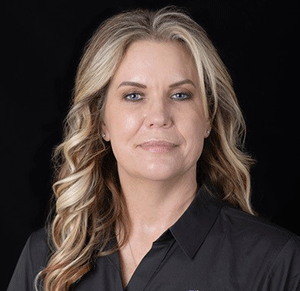Nikki Grace-Strader on not wasting any time

By Theresa Flaherty, Managing Editor
Updated 10:00 AM CDT, Fri September 29, 2023
 YARMOUTH, Maine – O&P Woman of the Year Nikki Grace-Strader wears a lot of hats at Osseointegration International, but chief among them is educating patients and clinicians about osseointegration, a procedure that enabled her to walk again.
YARMOUTH, Maine – O&P Woman of the Year Nikki Grace-Strader wears a lot of hats at Osseointegration International, but chief among them is educating patients and clinicians about osseointegration, a procedure that enabled her to walk again.
When Grace-Strader lost a leg several years after due to a spinal cord injury, she eventually underwent OI to directly connect a prosthesis to the end of her residual limb.
“I became really passionate about exploring options for patients who didn’t have any,” says Grace-Strader, who is the director of North American operations for Osseointegration. “I eventually traveled to Australia with my family in 2018 to have this surgery. Seven days after my surgery, I took my first steps on the parallel bars and knew instantly that we were going to be OK.”
Grace-Strader, who was recently honored as the O&P Woman of the Year by the Orthotic Prosthetic Group of America, spoke with HME News about her efforts to advocate for other amputees, even while she continues her own path to recovery.
HME News: When did you first become aware of the need for advocating on behalf of amputees?
Nikki Grace-Strader: I live in a very rural area. There came up a situation in the rehab facility where a woman, a Medicare patient, was trying to go home and they determined that it wasn't safe for her. She didn't have the resources (to make it safe) and so her alternative was to go to a skilled nursing facility. I started asking questions – how do we help; how can we get materials to build a ramp? – and (I learned) that there weren't any resources. The next day, I started a nonprofit to fill that gap in rural America.
HME: And then you started researching emerging technology for amputees after learning that your own options to start walking again were limited?
Grace-Strader: I had this really bold vision that I was going to go into my first visit (with a traditional prosthetist) and it would work. I was immediately deflated and so I started researching and I quickly learned that there weren't really a lot of options out there and there weren’t really a lot of resources to answer that question. I found OI and that it was not available in the U.S. at that time.
HME: How does your personal experience as an amputee benefit your work?
Grace-Strader: When I'm talking with a potential patient, I can share what it was like for me. Most people don’t know an amputee until they become one. When I’m meeting legislators and policymakers, just being in the room with them and having the ability to show them this technology and how it works and how it's affected my life? It's jaw-dropping to see the response that it gets. It always helps to put a face of a real person on anything like this.
HME: When you look ahead, are you excited about the possibilities for future technology?
Grace-Strader: So many things are going to be possible. (OI) is an emerging technology itself and there are so many things that can open up adjacent to that. I compare it to 20 years ago when the microprocessor knee hit the market. Patients were excited – they saw the possibilities in it right away – but the industry was terrified of it because there was no code for billing, prosthetists didn't have a lot of training on it and doctors didn't know how to write proper notes and prescriptions to secure the device. It took 10 years before the (industry) could get up to speed. I don't want to see that kind of time go by again.
Comments